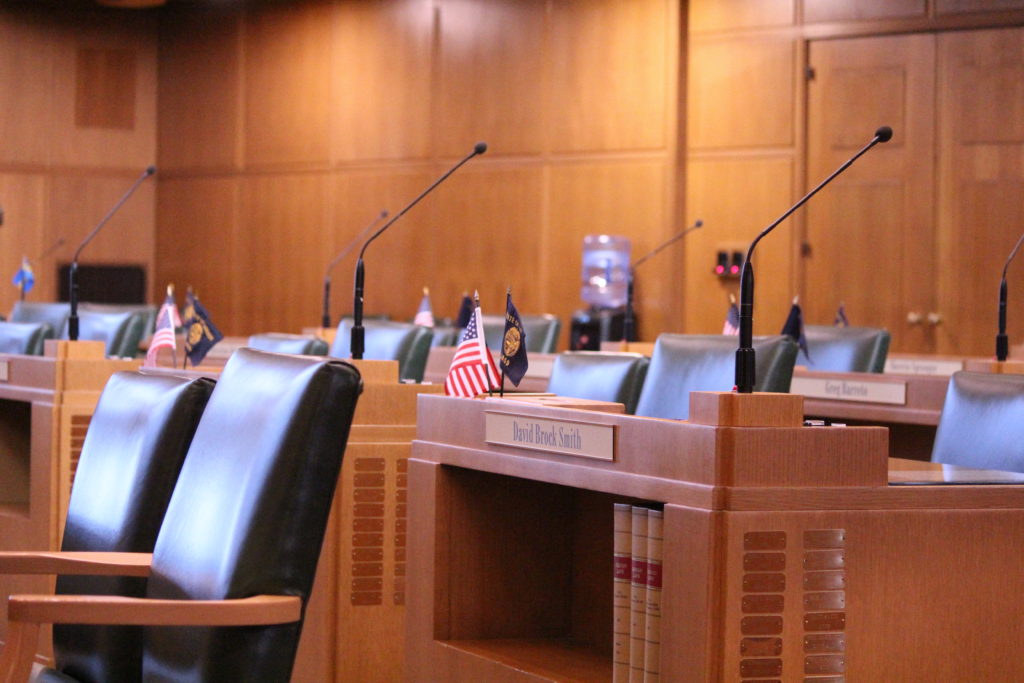
By the Oregon Capital Bureau
SALEM — With Republican legislators absent from the Capitol for the third day over a proposal to reduce Oregon’s greenhouse gas emissions, Democrats in the House and Senate said they were determined to stand against demands to refer the proposal to voters.
Although there are some faint hints of a resolution to the stalemate, most talk around the Capitol on Wednesday was that would go home without passing most legislation when the Constitution requires them to adjourn March 8.

Legislative leaders remain tightlipped about any plan they were considering to put an end to the dull days of inaction that a walkout creates.
But, during a phone interview Wednesday, House Republican Leader Christine Drazan said she is regularly talking with leaders of the House Democrats that she characterized as productive. She declined to provide any details.
“We’re not at a point where any of the proposals are at a stage that they’re ready to be shared,” Drazan said. “But I do think that the fact that we continue to talk and we’re open to each other’s ideas is a really good sign.”
If the Republicans hold firm on their boycott, Democrats have no choice but to remain in session until the legal clock expires March 8. Adjourning any earlier would require a quorum unless at least two Republicans return to the floor in each chamber.
This week’s departures represent the fourth and fifth boycott by a Republican caucus in the last year. In 2019, Democrats twice conceded to Republican demands, allowing legislative work to resume.
This time, there appears to be a feeling among most Democrats that yielding to Republican demands would continue to reward their absence. This time, they intend to show there is a price for a Republican rebellion – the death of bipartisan legislation aimed at community needs and budget adjustments that even Republicans support.
On Monday, Senate Republicans walked from the building. Twenty-four hours later, their House counterparts followed suit, bringing votes in the Legislature to a full stop.
After months of negotiations on the proposal to reduce the state’s greenhouse gas emissions, Oregon’s elected leaders appear to be handling this particular impasse by digging in.
Legislative committees, minus Republican members, have continued working on bills and policy discussions have continued. But it’s unclear if their legislative work will result in new laws.
To date, just three bills have passed both chambers and been sent to Gov. Kate Brown to sign into law.
Both chambers, in a formality, convened for less than 15 minutes Wednesday and adjourned.
“I wish the Republicans would understand the importance of their being here,” President Peter Courtney told the Senate. Courtney listed multiple bills passed by the House with bipartisan support that the Senate could be considering — if only Republicans would show up.
One bill is aimed at honoring deceased veterans. Another would protect water rights in southern Oregon. Others would reform the state’s public defense system, boost affordable housing in Pendleton, address school bullying, require building standards in tsunami zones and make insulin more affordable.
There are currently 42 bills awaiting a vote in the Senate, 38 of which have already passed the House. The Senate has passed 14 bills now waiting a final vote in the House.
In the House, 118 measures currently await action, of which seven are ready for third reading and a vote by House members. Another seven Senate bills are ready to come before the House for a vote as well.
Brown wrote to Republican leaders in the House and Senate on Monday, admonishing them for their absence. The Oregon Capital Bureau obtained the letter Wednesday.
“I am disheartened at your lack of leadership on this matter,” Brown wrote to minority leaders Sen. Herman Baertschiger, Jr., R-Grants Pass, and Rep. Christine Drazan, R-Canby.
The governor said she remained “open to additional modifications,” including a provision that would end the program in 2035 unless legislators renewed it.
Senate Majority Leader Ginny Burdick, D-Portland, and House Majority Leader Barbara Smith Warner, D- Portland, expressed little appetite for further negotiations with Republicans. Burdick said that the bill being protested by Republicans has already been heavily compromised with concessions made for rural parts of the state.
Baertschiger called into “The Lars Larson Show,” a conservative Portland-based radio talk show, from an “undisclosed location” to restate his party’s condition for returning to work: the cap and trade bill is spiked, or it is put before voters. Without such a deal, his caucus would stay away until the Legislature is forced to close by law in March.
“If we don’t come to an agreement on that legislation, I don’t see any other choice for us,” he said.



